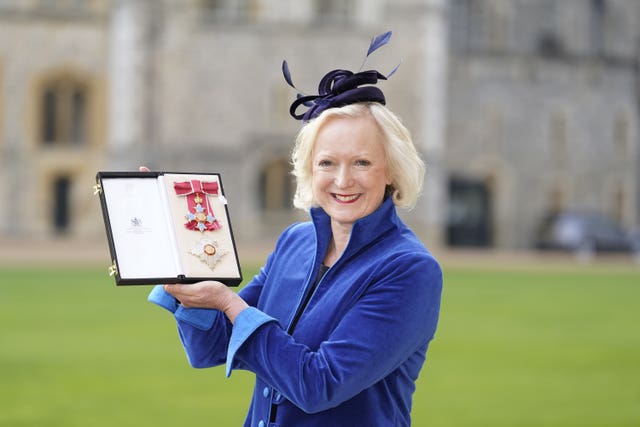‘Never a more pressing time’ to prevent ill health, NHS director says
Professor Sir Stephen Powis addressed delegates at NHS ConfedExpo in Manchester on Wednesday.

There has never been a more pressing time than now to prevent ill health, according to the national medical director of NHS England.
Speaking at NHS ConfedExpo in Manchester on Wednesday, Professor Sir Stephen Powis said prevention is at the top of his list when it comes to dealing with rising demand in the health service.
“We learned very early on in medical school, in nursing school, in whatever school, that prevention is better than cure,” he told delegates.
“It is the case that ever since the NHS was founded, we have been trying to be a health service not just an illness service.
“But if we’ve been trying to do it for almost 76 years, there’s never a more pressing time to do it than now.”
He said this is due to the country’s demographic changes.
“For really great reasons of improvements in society and in health care, people are living longer, and that means we have more of our population in those age brackets towards the end of life, when you tend to start getting disease and you tend to start getting not one disease but multiple diseases,” Prof Sir Stephen added.
“And we’re going to see more of that because the population is ageing. And so that is a pressing issue for us.”
Prof Sir Stephen added: “We need to find a way of dealing with that demand. And prevention is top of my list dealing with that because many of those illnesses are preventable.”
He highlighted NHS initiatives that are supporting ill health prevention, such as digital weight management programmes, diabetes prevention programmes and smoking cessation programmes.
“But of course, there’s more to be done,” he said. “And of course, it’s not just the NHS, it’s local government. It’s national government.”

He also said that weight-loss drugs will be an “important part” of tackling obesity, adding: “It does alarm me though, when I hear reports that they are being inappropriately used.
“These are powerful medications that have side effects and complications, and can in certain circumstances, be dangerous, so they need to be used under medical supervision.
“They are absolutely not quick fixes for people who are otherwise healthy who just want to lose a few pounds.”
Prof Sir Stephen spoke alongside Dame Ruth May, the outgoing chief nursing officer (CNO) for England, who announced her retirement in April.
At the time, she described her career in the NHS – which she started as a nurse in training in 1985 – as a “privilege”.
Dame Ruth has been in her current role since 2019, helping to steer the response from the midwifery and care professions during the Covid-19 pandemic, and was awarded a DBE a part of the Queen’s Platinum Jubilee Honours in June 2022.
When asked what advice she would give her successor, Dame Ruth said they should be wary of social media, urged them to act with integrity and listen to patients, and reflected on nurses strikes.
She light-heartedly said she would warn the next CNO “don’t do Twitter,” adding: “There’s a serious side to that to be honest, because X (formerly known as Twitter) can be quite vicious sometimes.
“So just be careful how you do social media.”
Dame Ruth added: “I know those organisations that have made the most improvements, and sustained improvements, in maternity services are those the ones that have listened to families and put the families at the heart.”
Speaking about integrity, she added: “Always act with integrity. And sometimes in our position that’s quite hard. It’s quite hard. It’s sometimes very hard to act with integrity.”
When asked why she thought it is sometimes difficult to act with integrity, she said: “I just think back to the industrial action for nurses – really tough to do and I know that lots of nurses made a personal tough decisions as to whether to take industrial action or not.
“But I decided that I would go and visit nurses that weren’t taking industrial action and those nurses on the picket line, and for me, that was important. To be able to support all nurses.”





